Technical innovation is fundamental to engineering; it's the first steps of exploring a new idea, transforming concepts from computer screens into fully developed reality.

This Nottingham University site tests pioneering electrical propulsion systems, using ABB tech. Image Credit: ABB
ABB solutions enable testing of those ‘early works’ and, later in the product cycle, help ensure the accuracy and reliability of novel technologies once they become commercially available.
A leading UK facility at the University of Nottingham uses ABB technology to support development programs for electric aircraft propulsion and other similarly visionary transport solutions.
Nottingham’s Power Electronics and Machine Centre (PEMC) has a 2 MW dynamometer test stand equipped with an ABB motor and drive system, installed by turbomachinery test rig specialists Torquemeters.
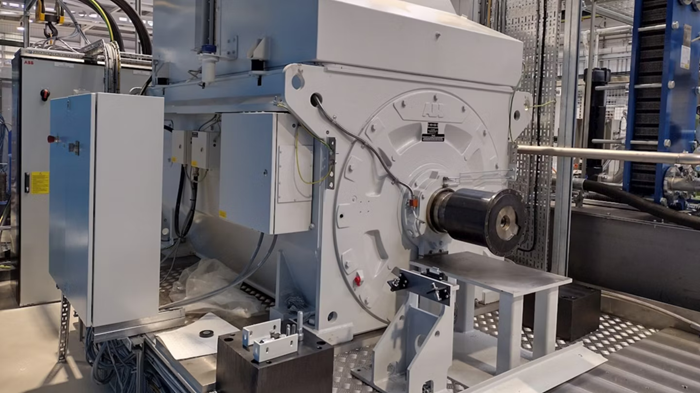
The advanced dynamometer test rig at Nottingham University’s propulsion testing facility. Image Credit: ABB
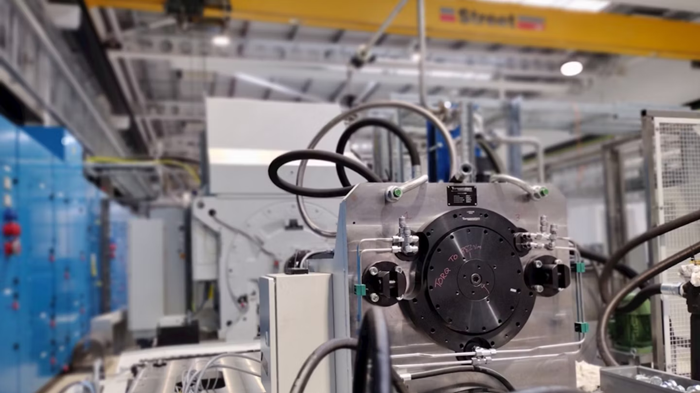
Industrial machinery with a large white casing, marked "ABB," featuring controls and components in a modern manufacturing facility. Image Credit: ABB
The dynamometer, an electro-mechanical system capable of four-quadrant power conversion and dynamic thrust load simulation, will help unlock new possibilities for the future of clean, electrified propulsion systems.
Handling transport emissions is an essential part of the UK government’s commitment to a 68 % reduction in GHG emissions by 2030. Figures from 2024 show that the country’s highest emitting sector is domestic transport, responsible for 30 % of all emissions.1,2
Researchers at Nottingham University aim to develop and assess green, sustainable propulsion systems for all transport modes, with a primary focus on hybrid and electric demonstrators for air, land, and marine industries.
Their testing rig can simulate mechanical loads experienced by propellers, gas turbine generators, and other mechanical transmissions. This kind of testing is essential for research and development.
ABB’s drive and motor package solution for the Torquemeters rig uses the ACS880 single drive in a liquid-cooled, low-voltage, industrial multi-drive converter format.
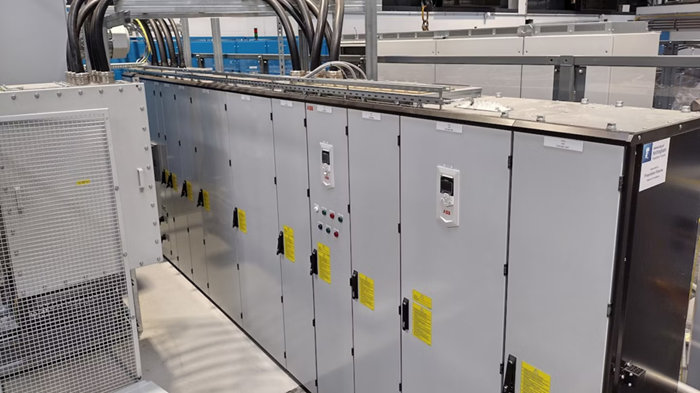
Our ACS880 platform is a liquid-cooled, low-voltage industrial multi-drive converter format. Image Credit: ABB
The converter is equipped with an Active Front End (AFE) fully regenerative rectifier, while the drive also includes a separate DC connection cabinet. The motor is an ABB Optimum Performance modular 2MW 0-75Hz AMI-type water-cooled design, optimized for the ACS880.
ABB solutions have supported heat management for the test rig. Similar systems usually need to be constructed near a lake or reservoir to supply water cooling. However, the regenerative ABB drive used by Torquemeters can absorb and recirculate excess power. This boosts efficiency, reduces cooling requirements, and lowers investment expenses.
We hope that our work here can help to pave the way for a revolution in greener transport. The PEMC sits at the center of the future of propulsion, and we expect the University of Nottingham to be a key player in developing innovative electrification solutions for the transportation of tomorrow.
Chris Varley, Facility Manager, PEMC, Nottingham University
Investing in the Cutting-Edge Accuracy of Flow Measurement
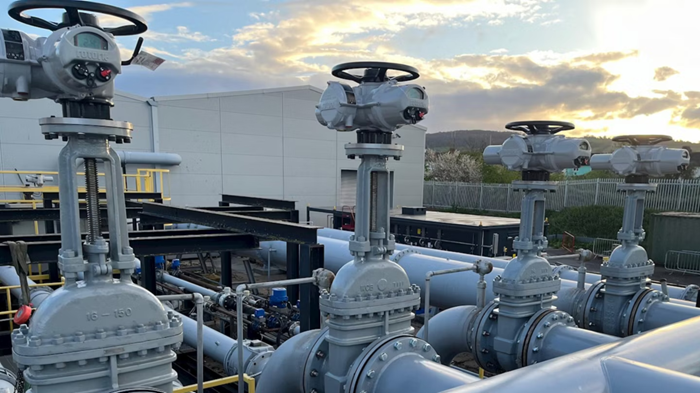
Flowmeter calibration at our Stonehouse site in south-west England. Image Credit: ABB
In addition to evaluating novel technologies, ensuring the accuracy of current technology plays an essential role in engineering development.
ABB’s Stonehouse facility in the southwest of England has been providing world-leading flowmeter calibration for over 45 years. Its industrial flowmeters are used worldwide to measure liquid flow in sectors such as water, chemicals, oil, and gas.
ABB Stonehouse Drone Flight
Video Credit: ABB
These flowmeters are manufactured in bore sizes ranging from two to 2000 mm, tailored to client specifications with the highest levels of accuracy.
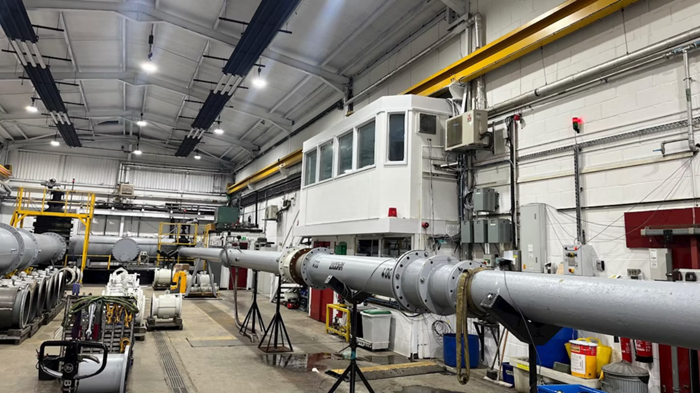
Our site at Stonehouse has recently benefited from a £2.1m upgrade. Image Credit: ABB
As the largest and most sophisticated continuous flow laboratory in the world, ABB Stonehouse evaluates both its own products and those from other manufacturers at a site that has recently undergone a £2.1 million upgrade.
Improvements include:
- Addition of a fourth calibration line
- Installation of an 800xA Distributed Control System
ABB Ability System 800xA Introduction video
Video Credit: ABB
- Latest generation ACS800 500kW and 250kW drives, significantly enhancing pumping efficiency
- Site-wide energy consumption analysis with ABB Ability™? Building Analyzer
- Energy-efficient lighting upgrades
ABB Ability™ Building Analyzer
Video Credit: ABB
- Enhanced water use and recirculation tracking
- Installation of a photovoltaic array (solar panels)

ABB Stonehouse has offered world-leading flow measurement for more than 45 years. Image Credit: ABB
We wanted to make significant improvements in factory energy efficiency and having accurate data was key. ABB Ability™ Building Analyzer was straightforward to install, and the interface was easy to use. What surprised us was how quickly we could use the data to make step changes in energy usage. Our actions in the first year saved 20 percent in electricity usage alone.
Uwe Tschirner, Division Manager UK and Ireland, ABB Measurement & Analytics
Whether by demonstrating its commitment to energy efficiency in its operations or by aiding others in pursuing novel engineering paths, ABB solutions enable the next generation of UK technology to thrive.
References and Further Reading:
- Burnett, N. and Stewart, I. (2024). The UK’s Plans and Progress to Reach Net Zero by 2050. (online) House of Commons Library. Available at: https://commonslibrary.parliament.uk/research-briefings/cbp-9888/.
- Department for Energy Security and Net Zero (2025). Provisional UK greenhouse gas emissions statistics 2024. (online) GOV.UK. Available at: https://www.gov.uk/government/statistics/provisional-uk-greenhouse-gas-emissions-statistics-2024.

This information has been sourced, reviewed, and adapted from materials provided by ABB Measurement & Analytics.
For more information on this source, please visit ABB Measurement & Analytics.